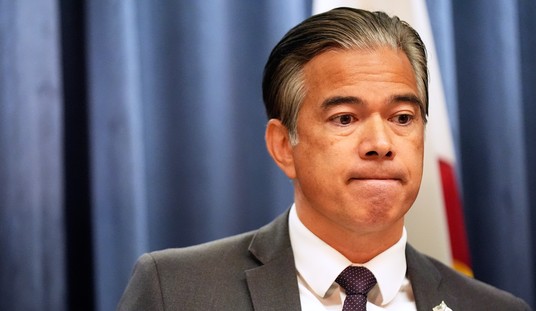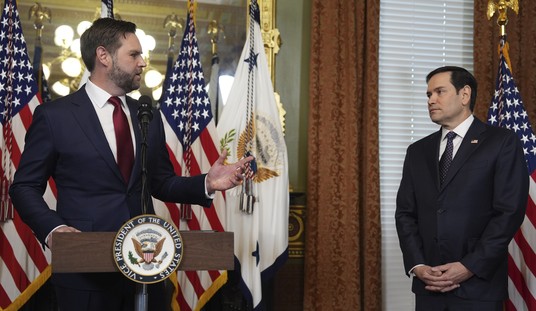In which I come to praise Ron Paul, not to bury him — mostly. Alone among the presumed presidential contenders in 2012, Paul actually came back to the media filing center at the Southern Republican Leadership Conference and took some questions. In fact, at first it seemed that the media was so surprised that initially no one asked any questions. And while Paul engaged in a little bit of histrionics and offered a taste of his absolutist positions, he did also manage to be charmingly self-deprecating and engaging at the same time. He got most agitated when it came to the question of adding Americans to an “assassination list,” warning that the process had very little review and could be broadened at the whim of bureaucrats, points that I’ll take up below:
Paul says that the list includes “three or four” American citizens, according to his understanding, rather than just Anwar al-Awlaki (also spelled Aulaqi), which would be news indeed. Thus far, the Obama administration has only acknowledged Awlaki’s status on that list. Not too many people asked how the al-Qaeda recruiter ended up on the list, either, mainly because most people knew of his involvement in the Fort Hood massacre and the attempted Christmas Day bombing of an inbound Northwest Airlines flight from Amsterdam. Awlaki also is suspected of an operational role in the 9/11 plot, a point mentioned in the 9/11 Commission report but largely overlooked.
I predicted, as did Andy McCarthy, that few on the Left would criticize Obama for the hypocrisy Paul mentions of giving habeas corpus to foreigners captured abroad but targeting American citizens for assassination. At the same time, I did predict that Glenn Greenwald would one of the few with the intellectual honesty to strenuously object and raise the same issue of hypocrisy, which he did almost immediately. In fact, he called the Obama position “Orwellian and tyrannical,” and he makes a key distinction that we should do well to keep in mind:
Today, both The New York Times and The Washington Post confirm that the Obama White House has now expressly authorized the CIA to kill al-Alwaki no matter where he is found, no matter his distance from a battlefield. I wrote at length about the extreme dangers and lawlessness of allowing the Executive Branch the power to murder U.S. citizens far away from a battlefield (i.e., while they’re sleeping, at home, with their children, etc.) and with no due process of any kind. I won’t repeat those arguments — they’re here and here — but I do want to highlight how unbelievably Orwellian and tyrannical this is in light of these new articles today. ….
No due process is accorded. No charges or trials are necessary. No evidence is offered, nor any opportunity for him to deny these accusations (which he has done vehemently through his family). None of that.
Instead, in Barack Obama’s America, the way guilt is determined for American citizens — and a death penalty imposed — is that the President, like the King he thinks he is, secretly decrees someone’s guilt as a Terrorist. He then dispatches his aides to run to America’s newspapers — cowardly hiding behind the shield of anonymity which they’re granted — to proclaim that the Guilty One shall be killed on sight because the Leader has decreed him to be a Terrorist. It is simply asserted that Awlaki has converted from a cleric who expresses anti-American views and advocates attacks on American military targets (advocacy which happens to be Constitutionally protected) to Actual Terrorist “involved in plots.” These newspapers then print this Executive Verdict with no questioning, no opposition, no investigation, no refutation as to its truth. And the punishment is thus decreed: this American citizen will now be murdered by the CIA because Barack Obama has ordered that it be done. What kind of person could possibly justify this or think that this is a legitimate government power?
It’s tempting to just dismiss this argument solely on the basis that it comes from Ron Paul and Glenn Greenwald, but it would be a mistake. Later, among other bloggers, I pointed out the danger of having this kind of power held in mainly by unaccountable bureaucrats to some of my colleagues, and it started an interesting debate over the nature of American citizenship, treason, and national defense.
This argument hinges on the idea of targeted assassinations of American citizens apart from normal military action, which is what the order appears to authorize. If Americans join the Taliban or al-Qaeda and are in a location targeted for military attack, few would argue that the military had any responsibility for capturing the American traitors and preserving their lives in a battle. The same would be true for drone-launched attacks on Taliban or AQ assets. The raids in Yemen, in which we initially thought Awlaki had been killed, are an example of this case.
However, the assassination of Americans deemed to be “threats” without any sort of due process is another matter entirely. At the moment, this means that American intel services have no restrictions of action against Awlaki. While Awlaki is a very dangerous man, that kind of precedent could lead to some highly questionable outcomes. For instance, the Bulgarian government in 1978 considered Georgi Markov a threat and assassinated him by stabbing him with a ricin-tipped umbrella. In this new paradigm, that would be acceptable for American intelligence against any American citizen outside our jurisdiction deemed a “threat.” What constitutes a threat, and what level of threat justifies non-military assassination — and more to the point, who decides? Do we want Barack Obama making those decisions, or any one President?
With that being said, we certainly need to defend our country against attack. If Awlaki has aligned himself with AQ, he has become an enemy at war with the US and we need to deal with him accordingly. The extrajudicial assassination route may make sense, but it brings with it dangers that should be discussed, and small-government conservatives may be making a big mistake (myself included) in cheering this new policy on American citizens rather than demanding more accounting for the use of such power, or its use altogether. Otherwise, the relationship between American citizens and its government could fundamentally change, and not for the better.
Update: Dana Priest reported the “three or four” count on the list in January, including Awlaki, for the Washington Post (h/t Glenn Greenwald).







Join the conversation as a VIP Member